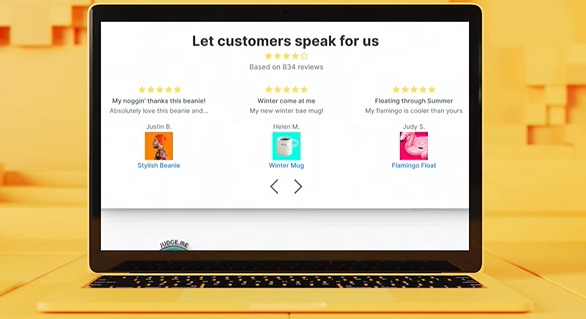How to Add Keyword in URL?

How to Add Keyword in URL SEO?
How to Add Keyword in URL SEO?
Discover how to leverage your site’s URLs for effective SEO performance. Learn how to incorporate relevant keywords into URLs, understand their structure and importance, and explore key considerations such as avoiding keyword stuffing and maximizing readability. This guide ensures your SEO strategy is effective, user-friendly, and search engine optimized.
Remember, a meta description should be concise (about 150-160 characters) and should provide a brief summary of the content of the page, enticing readers to click on your link in search engine results.
How to Add Keywords in URL for SEO
A web page’s URL plays a significant role in search engine optimization. By incorporating relevant keywords into your URL, you can make it more user-friendly and improve your chances of getting higher rankings in search engine results. Here’s how to do it:
Understanding The Structure of a URL
Before using keywords in your URL, it’s essential to understand its structure. A typical URL consists of the following:
- Scheme: This indicates the protocol used – http or https.
- Host: The domain name of the website.
- Path: The exact location of a page in the website’s file structure.
For instance, in “https://example.com/blog/seo-guide”, “https” is the scheme, “example.com” is the host, and “/blog/seo-guide” is the path.
The path is where you typically incorporate your keywords.
Identifying Your Keywords
Identify the main keywords relevant to the content of the page. These should be the terms your target audience is most likely to use when searching for the information, products, or services your webpage offers. Use tools such as Google Keyword Planner or SEMrush to help with your keyword research.
Adding Keywords to URL
Once you’ve identified your keywords, incorporate them into your URL in a way that is concise, understandable, and relevant to your content. Let’s consider an example:
Suppose you’re writing a blog post about easy yoga poses for beginners. Some possible keywords could be “easy yoga poses” and “beginners”. An optimized URL with these keywords might look like this: “https://yourwebsite.com/blog/easy-yoga-poses-beginners”
- Avoid Keyword Stuffing: Overuse of keywords may lead search engines to view your webpage as spam. Balance is key.
- Use Hyphens, Not Underscores: Use hyphens (-) to separate words in your URL to enhance readability. Avoid other characters, including underscores (_).
- Be Descriptive But Brief: While you want to include keywords, you don’t want a lengthy URL. Keep it concise and avoid unnecessary information.
The Impact of URL Keywords on SEO and User Experience
A webpage’s URL is an essential element in the realm of search engine optimization (SEO). The effective utilization of keywords in URLs can boost the user-friendliness of your website and increase the likelihood of achieving high rankings in search results. Reflecting the content within the webpage, the URL provides an easily navigable structure that facilitates search engines and users as they explore your site.
The Benefits of Keyword-Rich URLs for SEO
Using relevant keywords in URLs can improve your website’s performance in search engine results. When search engine bots crawl through webpages, they analyze various factors to understand the content and gauge its relevance to specific search queries. One such factor is the URL, which helps to establish the webpage’s context and relevance to the search criteria.
Here are the key advantages of using keyword-rich URLs:
- Higher Relevance: URLs with relevant keywords signal search engines that the webpage is likely to be a suitable match for the user’s search query and increases the page’s relevance score.
- Increased Click-Through Rates (CTR): A URL that contains keywords related to the search query is often perceived as more trustworthy and valuable by users, thereby improving the click-through rate.
- Enhanced User Experience: A descriptive URL, shaped by the inclusion of keywords, also offers users a clear understanding of the webpage’s content, thus improving the overall user experience.
- Improved Readability and Sharing: Self-explanatory and informative URLs are easier to share on social media platforms, both in their original form and as shortened links.
Implementing Keywords Into URL Structure
When incorporating keywords into your URL structure, consider the following best practices:
- Research Relevant Keywords: Identify the most relevant keywords for each webpage by using tools such as Google Keyword Planner or SEMrush to analyze your target audience and competitors.
- Use Short, Meaningful URLs: It is recommended to use short, descriptive URLs that provide users and search engines with a brief overview of the content, while avoiding unnecessary words or numbers.
- Separate Words with Hyphens: To enhance readability, use hyphens (-) instead of spaces and underscores (_) to separate words in a URL. This practice ensures that search engines can accurately distinguish individual words.
- Maintain Consistency: Stick to a consistent format for your URL structure, making it easier for search engines to crawl and index your site.
Incorporating relevant keyword in URL SEO structure is a straightforward yet powerful method of maximizing your website’s SEO potential. It is crucial to identify appropriate keywords and maintain a user-friendly, consistent URL structure to effectively boost your website’s search engine rankings.
Does Having Keyword in URL Help Ranking?
Importance of Keywords in URLs
Keywords play a pivotal role in Search Engine Optimization (SEO) and can potentially give some weight to your website’s ranking. Dedicating some thought to your URL structure and incorporating relevant keywords can elevate the search visibility of your site. Nonetheless, it’s crucial to recognize that URLs alone do not necessarily have a substantial impact on the page’s ability to rank.
Google’s View on URLs and Keywords
Some SEO specialists believe websites with keyword-rich URLs gain a ranking advantage over those with generic URLs. However, Google itself does not explicitly confirm this concept. It’s essential to navigate these SEO tactics while keeping Google’s guidelines and user experience in the forefront.
Utility of Keywords in URLs for SEO
When chosen carefully, keywords in URLs can enhance your SEO strategy. They can aid in making better decisions about content production and structuring your site. While relevance of URL keywords to SEO optimization has been debated, they undeniably serve several important roles.
Approach with Caution
While incorporating keywords in URLs can slightly boost their ranking, it should not represent the entirety of your URL strategy. It’s equally significant to balance SEO initiatives with readability and user-friendliness when it comes to designing URLs.
Keywords in URLs: No Clear-Cut Rules
The SEO community does not universally agree on the role of keywords in URLs for ranking. This ambiguity underscores the need for a comprehensive, multi-dimensional SEO strategy that extends beyond just keywords and URLs.
In Conclusion: Importance of Keyword in URL
Incorporating keywords into your URL is a straightforward yet highly effective stratagem in the extensive landscape of SEO. While the task itself isn’t convoluted, the impact it bears on search engine rankings can be substantial.
The primary objective here is twofold: to assist users in their search for relevant content and to enable search engines to understand and thus better index your webpage. The ingredients to achieve this goal lie in simplicity, descriptiveness, and a diligent focus on keywords that genuinely matter for ranking.
A URL enriched with relevant keywords paints a clear picture of your webpage’s content, making it readily accessible for users and attractive to search engines. It adds value where it matters, improving the site’s visibility and click-through rates, and enhancing the user experience.
Therefore, enriching your URL with target keywords isn’t just about improving SEO. It’s also about carving an effortless path for users to find the information they are seeking and providing an overall superior browsing experience. So remember, keep it uncomplicated, be descriptive, and prioritize true ranking-worthy keywords while crafting your URL.


